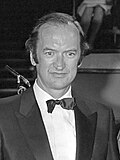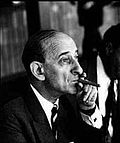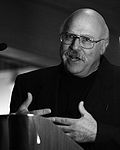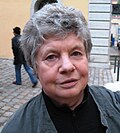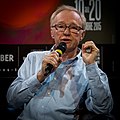| Erasmus Prize | |
|---|---|
| Awarded for | Notable contributions to European culture, society, or social science |
| Country | Netherlands |
| Reward | €150,000 [1] |
| First award | 1958 |
| Final award | Annual award [1] |
| Website | http://www.erasmusprijs.org/ |
The Erasmus Prize is an annual prize awarded by the board of the Praemium Erasmianum Foundation to individuals or institutions that have made exceptional contributions to culture, society, or social science in Europe and the rest of the world. [1] It is one of Europe's most distinguished recognitions. [2] The prize is named after Desiderius Erasmus, the Dutch Renaissance humanist.



























